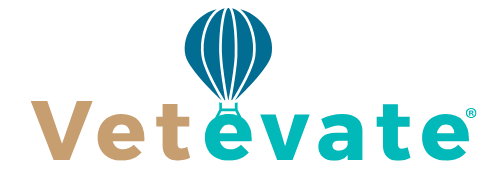Finding a new veterinary job is rarely as simple as submitting a resume and waiting for an offer. The veterinary field is competitive and specialized, and while demand for skilled professionals is high, landing the right role takes intention, strategy, and the right tools. One of the most valuable tools in your job search toolkit is a veterinary-specific job board. Unlike general job platforms, veterinary job boards are tailored for your profession, making it easier to connect with employers who understand your skills and experience. But just being on a veterinary job board isn’t enough—you have to know how to use it effectively to maximize your chances of success.
Many job seekers assume that creating an account and applying to a few listings is all it takes, but that approach often leads to frustration and missed opportunities. To truly benefit from a veterinary job board, it’s essential to engage with it strategically and consistently. From creating a standout profile to targeting the right jobs and maintaining momentum, the way you approach the platform can make all the difference in how quickly—and successfully—you find your next role.
Build a Strong, Searchable Profile
Your job board profile is more than a digital placeholder—it’s your first impression. Before you start applying to jobs, take the time to create a detailed, compelling profile that highlights your clinical skills, interests, certifications, and professional goals. Employers using veterinary job boards often search for candidates based on specific keywords, qualifications, and experience. That means a fully completed profile not only tells your story—it improves your visibility in search results.
Start with the basics: list your credentials clearly, including whether you’re a DVM, veterinary technician, assistant, or in another role within the field. Make sure your contact information is up to date and that your location preferences are clearly stated. If you’re open to relocation or remote work, mention that too, as it may widen your pool of opportunities. Next, move beyond the resume. Include a short summary that conveys your passion for animal care, your ideal work environment, and what makes you a unique asset to a veterinary team. This short paragraph gives hiring managers a quick sense of who you are beyond your job history.
Many veterinary job boards also allow you to upload a resume or CV. Don’t treat this as an afterthought. Use a clean, professional format, and tailor your document to highlight experiences that are most relevant to the types of roles you’re seeking. If you’re interested in specialty practice, leadership, or mobile care, make sure your resume reflects that direction. The more targeted your materials are, the easier it is for employers to see the fit. And if the job board offers a photo or video option, consider including a friendly, professional headshot or a short video introduction. In a people-first field like veterinary medicine, showing your personality can help you stand out.
Use Search Filters and Alerts
Veterinary job boards typically offer powerful search and filtering tools, but many job seekers don’t use them to their full potential. Instead of scrolling through dozens or hundreds of listings, take advantage of search filters to narrow your results based on job type, species focus, location, schedule, experience level, and other criteria. These filters allow you to zero in on the opportunities that actually match your goals, saving you time and increasing the likelihood that your applications will be successful.
If you’re not yet sure exactly what type of role you want next, use the search function to explore different possibilities. You may discover positions you hadn’t considered, such as relief work, telehealth, or nonprofit shelter medicine. A veterinary job board can serve as a career exploration tool as much as a job search tool. Spend time browsing different roles, noting what stands out to you, and keeping track of patterns. What kinds of employers are consistently offering the types of opportunities that interest you? What skills or experiences do those listings mention? Let that information shape how you present yourself and what direction you pursue.
One of the most useful features of veterinary job boards is the ability to set up job alerts. Once you know your desired criteria, create custom alerts that notify you when new positions are posted that match your interests. This keeps you in the loop without requiring constant manual searches. Since many of the best jobs are filled quickly, being one of the first applicants can give you a significant advantage. Checking your alerts regularly and applying promptly demonstrates initiative and enthusiasm, both of which employers notice.
Stay Engaged, Follow Up, and Keep Active
Job searching—especially in a specialized field like veterinary medicine—is rarely a one-and-done task. Success comes from persistence and engagement. Once you’ve applied to a position, don’t just sit back and hope for the best. Keep using the veterinary job board as an active part of your search process. Check back frequently to see new listings, adjust your filters as needed, and continue refining your profile based on what you’re learning from the market.
If the platform allows you to track applications, take full advantage of that feature. Staying organized helps you remember which employers you’ve contacted, when you applied, and whether or not you’ve heard back. If a reasonable amount of time passes and you haven’t received a response, don’t hesitate to follow up—professionally and politely. A short message expressing continued interest can make a positive impression and bring your application back to the top of the stack.
In addition to tracking applications, use the platform to engage with employers in other ways when possible. Some veterinary job boards allow direct messaging or include networking features. If you see a posting from a clinic or hospital you admire, but the job isn’t the right fit, consider reaching out anyway. Express your interest, introduce yourself, and let them know what you’re looking for. Building relationships—even before there’s an open role—can help you get considered for future opportunities that haven’t been posted yet.
It’s also important to be realistic and patient. Even with the right tools, a job search takes time. But using a veterinary job board strategically helps ensure that your efforts are aligned with your goals, targeted toward employers who are hiring, and connected to a community that understands your profession. That’s a far better strategy than casting a wide net on generic job sites or waiting passively for opportunities to come your way.
By creating a strong profile, using search tools intentionally, and staying engaged with the platform over time, you give yourself the best possible chance of finding a veterinary job that not only meets your needs—but excites you. With the right mindset and the right tools, your next great veterinary job could be just a few clicks away.




